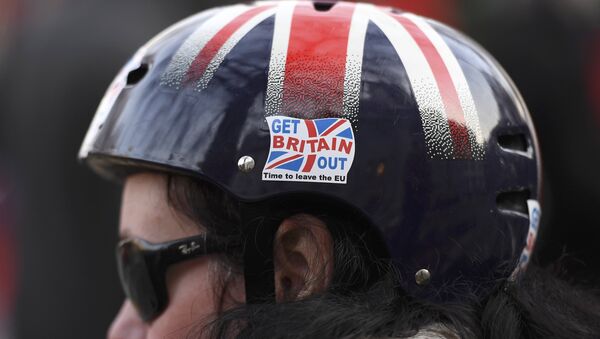A US sociologist James Davison Hunter has described the US political system as a 'cultural war,' meaning that issues such as abortion, race and religion are not separate from one another. In fact, according to Hunter they are interlinked and connected.
The report entitled 'Understanding the Leave Vote' argues that the UK referendum campaign exposed the extent of the cultural divide in British society over issues such as immigration. It also aims to understand why people voted to leave the EU.
If you missed it earlier, read our new report: Understanding the Leave vote https://t.co/GC9HnvoypB #brexplanations pic.twitter.com/s8VQYTNdRy
— NatCen (@NatCen) December 7, 2016
The research found that the EU referendum was highly divisive, highlighting a wide range of social, geographical and other differences in the UK. However, this was less a traditional left-right battle and more about identity and values, which included liberalism versus authoritarianism. This is a strong indicator, according to the research, that the so-called 'culture wars' of the US had arrived in the UK.
"Looking forward it remains to be seen if these issues will heel or continue to divide politics in the UK," the report says.
The following issues were cited as important for Leave voters and contributed to the reason why they voted for Britain to exit the EU. Twenty one percent of Leave voters said that the economy was a key reason for choosing Brexit. Another twenty percent of Leave voters said that immigration was a key reason and 17 percent said that sovereignty and bureaucracy was an important issue that led them to vote for Brexit.
NatCen Social Research study on "understanding the Leave vote" https://t.co/vs95JhfmZI pic.twitter.com/Xym2lhrNla
— Conor James McKinney (@mckinneytweets) December 8, 2016
The referendum was not decided along typical party political lines, so many Conservatives voted Leave, despite the then Tory Prime Minister David Cameron urging voters to stay in Europe.
'Left Behind'
The report found that 88 percent of those who cited immigration as a key issue, also voted to leave the EU. A further finding from the report was that the referendum attracted a group of 'new voters' who did not participate in the 2015 general election, 60 percent of this group voted Leave.
Good breakdown of the #Brexit vote from @NatCen https://t.co/UrnR6o1YvX pic.twitter.com/B8J1j9sZiZ
— ECFR (@ecfr) 7 December 2016
Within the report, NaTCen state that the Leave campaign's success was underpinned by a broad-based coalition of voters which is much more wide-ranging than the 'left behind'. This included three main groups: affluent Euroskeptics, the older working class and a smaller group of economically disadvantaged, anti-immigration voters.
This was also a trend seen in the US president-elect Donald Trump's campaign when he made it clear that he would be helping the working class and bringing employment back to areas of the country, ravaged by the 2008 global financial crisis.




